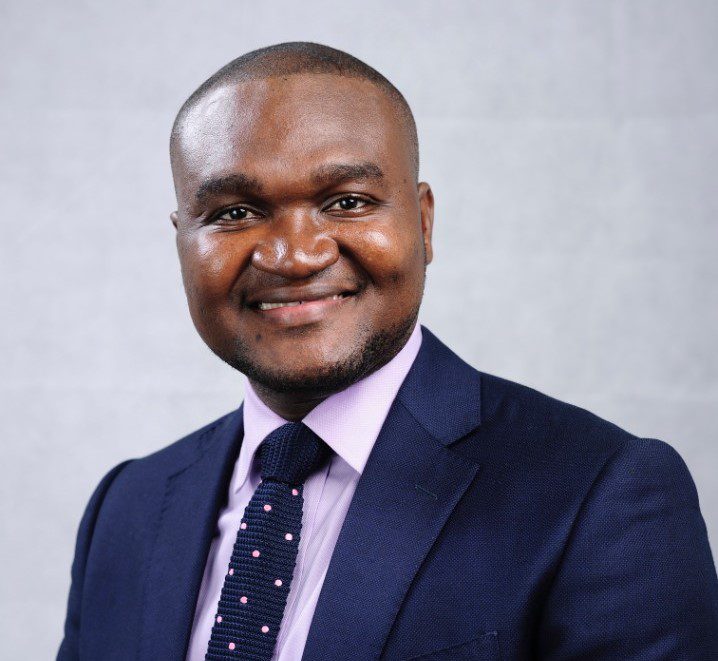On Tuesday, September 14, 2020, one of the front-page stories of the Daily Graphic was headed “Businessman in trouble over $1m gold scam”.
Reading the story on page 35 of the newspaper revealed a common pattern in most gold scams that I have become aware of in Ghana.
A rich investor, usually foreign, expresses interest in purchasing gold. A Ghanaian (I am not proud to write this) takes advantage of this interest and perpetuates fraud on the foreign investor.
It sometimes begins with sending a few grams or a kilo, ostensibly to build confidence and to establish the reliability of supply quantities. Once that is won, then the fraudster would move in for the kill, sometimes taking millions of dollars and disappearing.
Another modus operandi, as was the case in this Daily Graphic story, is to show the investor some bars, claiming them to be gold, without any independent third-party verification, forgetting the age-old adage that “all that glitters is not gold!”.
The story also reminded me of one of the cases I handled in my very early years of private practice as a lawyer which case involved the same scam pattern. In the end, recovering the millions of dollars became a whole nightmare for the investor.
The purpose of this article is therefore to throw some light on the gold trade (retail) in Ghana and suggest ways by which persons may mitigate the risk of becoming subjects of fraud by unscrupulous persons.
Ghana’s gold trade
Gold mining in Ghana dates as far back as over a century ago. Although gold is a finite natural resource, our country is blessed to continue to have large deposits of the same even after a century. In fact, there is news of new discovery of the precious mineral up north. It is therefore not surprising to learn that Ghana became the premier gold producing country in Africa and sixth in the world with a production of 138.7 tonnes in 2020.
The name Gold Coast, therefore, was a befitting one for our dear country. But for the breaking of the ties of colonialism, perhaps that name would still have been apt for our country. Forgive me, I digress.
For present purposes, the gold sector may be categorized into two – the large scale and the small scale, otherwise known as the artisanal small-scale mining (ASM).
The focus of this article is on the small-scale sector where the retail trade is predominant as opposed to the large-scale sector where one would usually find ‘offtaker’ agreements for whatever gold is being produced.
For the small-scale sector, you will typically have aggregators who are itinerant buyers across the various mining villages and towns. They may in turn sell to a known dealer for onwards sale to an investor.
Due diligence
As with all life endeavors, especially with business transactions, due diligence is a sine qua non in gold transactions. This is to ensure that you are truly getting value for money and reducing risks significantly.
Although Ghana continues to enjoy large deposits of gold d’ore, as an investor looking to purchase this precious mineral, it is always important to manage your expectations on supply.
Based on the prevailing industry conditions, reasonable quantities for weekly supplies range between a minimum of 1kg to a maximum of 30kg.
In other words, further due diligence ought to be conducted on any dealer who promises to supply above this maximum quantity per week.
Also, for anyone interested in purchasing gold, it is important to request for the following documentation from the vendor:
- A Trading Licence issued by the Precious Minerals Marketing Company (PMMC) which should be current and valid. Although security features have been put on the license to check forgery, it is always advisable to confirm the authenticity of the license with PMMC.
- In the case of exports, a valid Gold Export Licence issued by the Honorable Minister of Lands and Natural Resources in consultation with the Minerals Commission. Here too, it is advisable to confirm the authenticity of the licence with the Minerals Commission.
Depending on the quantities and hence stakes involved, a further due diligence may be conducted on the directors and/or shareholders of the entity you are dealing with.
With these due diligence checks ticked, we shall now turn our attention to the transaction itself.
Independent third-party verification - Assay
For a smooth and ‘wahala-free’ transaction, it is imperative to have an independent third party verify the authenticity of the gold through a proper scientific analysis which is known as assaying.
The Precious Minerals Marketing Company (PMMC), as the designated National Assayer, has the requisite facilities to offer this service.
This third-party verification exercise cannot be overemphasized as it ensures that the goods are actually gold. Also, through assaying, PMMC is able to indicate the purity of the gold contents and by extension the world market value at the time of assaying based on the prevailing LME price.
This could be useful to both transactional parties in terms of price negotiations.
It is important to note that for each assay of any sample, PMMC issues a certificate with distinct security features. Once again, this is to check the incident of fraudulent tampering with the Assay Certificate, which can always be verified with PMMC, if further due diligence ought to be done at any stage.
Conclusion
In instances where the purchaser is unable to be present in Ghana for the transaction, it is usually advisable to have an agent or representative in the country to oversee and supervise the transaction.
As the sole Government entity responsible for the downstream sector of the precious minerals industry, PMMC is deeply concerned about the incidents of fraud within the sector. Hence, a lot of thinking is going into introducing measures to safeguard the industry against fraudsters, thereby building investor confidence.

About the author; Nana Akwasi Awuah is a lawyer and Managing Director of the Precious Minerals Marketing Company (PMMC). Contact via its website at www.pmmc.gov.gh or via email at info@pmmc.gov.gh.
Latest Stories
-
The Conscience of Leadership: A call to President Akufo-Addo on Ghana’s environmental devastation
6 mins -
Ghanaian youth unaware of their right to hold politicians accountable – Youth Bridge Foundation
58 mins -
Judge delays Trump sentencing for a third time
1 hour -
2024 WAFCON: Ghana drawn against defending champions South Africa in Group C
2 hours -
Photos from DW-JoyNews street debate on ‘galamsey’
2 hours -
Mimmy Yeboah: Blending heritage with global sophistication, confidence redefined through couture
3 hours -
100 Most Influential People Awards 2024: Brain Hill International School’s Director Mary Anane Awuku honoured
3 hours -
Akufo-Addo commissions 97-km Tema-Mpakadan railway line
3 hours -
Majority requests recall of Parliament
3 hours -
Kanzlsperger and Professor Quartey support WAFA with medical Donation
3 hours -
Gideon Boako donates 10 industrial sewing machines to Yamfo Technical Institute
4 hours -
‘Golden Boy’ Abdul Karim Razak honored at WAFU-B general assembly
4 hours -
Buipewura Jinapor secures Vice Presidential position in National House of Chiefs with record votes
4 hours -
2024 election: I want results to come out like ‘milk and honey’ – Toobu
4 hours -
Ghana’s Henry Bukari hands over chairmanship of ECOWAS Brown Card Council of Bureaux
4 hours

